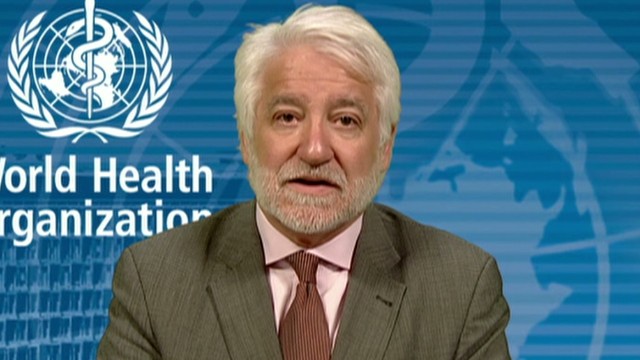- Back to Home »
- Deadly virus spreads to Italy
- Of 53 known MERS-CoV infections worldwide, 30 have ended in death
- Three Italian patients are first in their country to contract the virus
- Symptoms are cold-like but are severe and can lead to pneumonia and kidney failure
- The WHO calls the virus "a threat to the entire world"
Read a version of this story in Arabic.
(CNN) -- The sometimes deadly MERS-CoV virus has spread to Italy, the World Health Organization said in statements this weekend.
Sunday's announcement that two female patients had contracted the virus follows one Saturday that said a 45-year-old man, who had recently traveled to Jordan, had become infected. They are the first three known cases in Italy.
Middle East respiratory symptom coronavirus, or MERS-CoV, acts like a cold virus and attacks the respiratory system, the U.S.-based Centers for Disease Control and Prevention has said. But symptoms, which include fever and a cough, are severe and can lead to pneumonia and kidney failure.
Opinion: Why virus is so scary
Of the 53 known infections with the virus, 30 have resulted in death since September 2012, the organization said. Precise data are not available on the total number of people who have been infected because it is difficult to tell how many get a mild form of the infection.
 WHO tracks new virus to Middle East
WHO tracks new virus to Middle East  Health workers infected with coronavirus
Health workers infected with coronavirus  How is dangerous new virus spreading?
How is dangerous new virus spreading? A patient died May 28 in France after having contracted the virus during a trip to the Middle East.
The health agency said the three Italian patients were all in stable condition. The two cases reported Sunday were a 42-year-old woman and a 2-year-old girl who are close contacts of the man, the WHO said.
The virus is "a threat to the entire world," the WHO's general director said last week.
5 things to know about the coronavirus
It "is not a problem that any single affected country can keep to itself or manage all by itself," Margaret Chan said Monday in her closing remarks at the 66th World Assembly in Geneva, Switzerland.
Although many of the cases have occurred on the Arabian Peninsula, people have died of the infection elsewhere, including in four European countries and Tunisia.
However, "all of the European cases have had a direct or indirect connection to the Middle East," the WHO said earlier this month. But "in France and the United Kingdom, there has been limited local transmission among close contacts who had not been to the Middle East but had been in contact with a traveler recently returned from the Middle East."
Coronaviruses cause illnesses ranging from the common cold to SARS, or Severe Acute Respiratory Syndrome, as well as a variety of animal diseases.
Health officials do not yet know much about how the newly discovered virus spreads, which makes it hard for scientists to prevent infections, Chan said.
The WHO is calling for the world to pull together its resources to study and tackle the virus.
New virus is a 'threat to the entire world'
CNN's Miriam Falco and Ben Brumfield contributed to this report.







